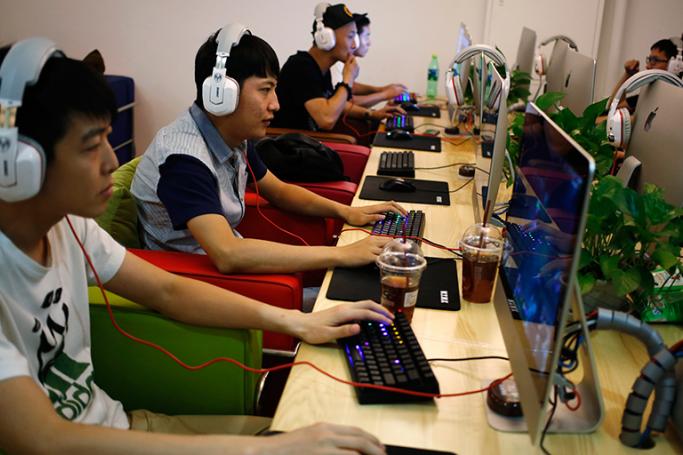As Donald Trump clinched an unexpected victory to take the white house, many Chinese people, especially Millennials, seemed to enjoy a carnival-like atmosphere on Wednesday.
Due to the process of counting votes carried out in the daytime on the other side of Pacific, this gave many Chinese people the opportunity to watch the whole live coverage.
On China’s largest social media Weibo, the tag #USelection became the hottest topic of discussion and attracted a remarkable 1.25 billion readers while #Trumpwins was the most searched for item on the platform.
Compared to the American people who seriously expressed their views, most Chinese people regarded the election as an entertainment topic. Many netizens played the role of joke writer or punster to create many interesting comments.
“Recently, the plot of Korean drama is so wonderful (refers to the Choi Soon-sil political scandal), the American drama should catch it up!” a Shanghai netizen commented. Another Chinese netizen said, the US general election has fuelled ordinary Chinese people towards a rare passion for “political participation”.
Not only ordinary people, some celebrities also joined in. Zhou Xiaoping, a famous essayist and blogger, had vowed before the election to eat soil while live streaming if Trump won the presidency. Moreover, Wang Chong, a famous international relations scholar also promised to streak on the street if Clinton was defeated.
When it comes to the media, Pear Video, a newly established video news website, found the “secret” under Trump’s victory: Most of the materials used in the political campaign are ‘made in China’, which included the flags of the two main candidates. So a journalist visited a flag processing factory in Yiwu, Zhejiang province, inquiring of the factory owner the quantity ordered. “We dare not manufacture Hillary flag because we are afraid that no one needs these. However, the demand for Trump flags is very high.” The owner responded
Under this cheerful atmosphere, differing from that of the US media, a Trump victory was particularly welcomed by most of the Chinese media and the public. “A Trump victory marked the working class’s resistance towards the elite.” This kind of opinion is very common among the masses in China, in contrast, the views related to racial discrimination or gender equality are very few.
“Two parallel but irreconcilable narratives about U.S. politics have guided Chinese understanding of the United States for decades,” said an analysis published in Foreign Affairs, “the American real estate mogul is forcing the Chinese public to reassess its understanding of the U.S. political system. More consequentially, depending on the eventual outcome of the election and its long-term impact, the Trump phenomenon may change how the Chinese think about democracy.”
You are viewing the old site.
Please update your bookmark to https://eng.mizzima.com.
Mizzima Weekly Magazine Issue...
14 December 2023
Spring Revolution Daily News f...
13 December 2023
New UK Burma sanctions welcome...
13 December 2023
Spring Revolution Daily News f...
12 December 2023
Spring Revolution Daily News f...
11 December 2023
Spring Revolution Daily News f...
08 December 2023
Spring Revolution Daily News f...
07 December 2023
Diaspora journalists increasin...
07 December 2023
Australian Ambassador discusses Myanmar relations, assistance programmes












